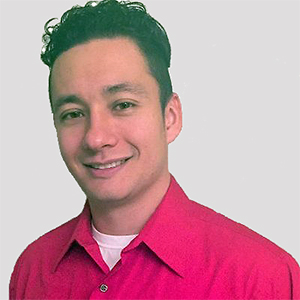I struggled all my life with ADHD (Attention Deficit Hyperactivity Disorder), which made me feel inadequate compared to everyone else. My mind only consisted of negative self-talk, where I convinced myself I was not “normal” or “good enough”. After so many years of continuous self-hatred and suffering episodes of hopelessness over something I could not change, I turned to taking a shot of alcohol to calm myself down. But that shot eventually turned into three, then four, and thus, my alcohol addiction began at age 16. It felt good to be numb and ignore my insecurities. I used alcohol as a coping mechanism. I somehow convinced myself throughout the years that I was perfectly okay if I ignored what hurt me.
An Everyday Person
You probably wouldn’t think I was an addict. I socialized with friends, had a functional family, went on dates, performed my professional job well, and impressed my colleagues with my “delightful” sense of humor. I was careful about when I drank, making sure I was completely alone when binge drinking. I also abused drugs—whatever I could get over the counter. However, it didn’t change the fact I had an addiction. I put in the effort to perfectly craft my addiction so as not to interrupt my everyday life.
When I was 22, I suffered severe alcohol poisoning and overdosed on drugs, a combination that almost took my life. It was then that I agreed to an addiction recovery program that my doctor recommended. I had no objections because there was no point in denying things anymore.
Becoming sober was something I always knew I needed, but never wanted to acknowledge as a tangible issue. I learned that you can only live in so much self-denial, You may think that you can hold bitterness inside, but when the fragile mask cracks, there are too many emotions to handle alone and all at once.
Initially, I thought that the recovery methods were tedious. But over time, I came around to opening up in group therapy, stopped lying to my therapist, and learned that there were people just like me—everyday people who were screaming on the inside. I surrendered to the mandatory doctor check-ups, confronted and removed every trigger that made me want to drink. I also appreciated the company of my sober companion who helped me adjust to life without drugs and alcohol. I tried to be nice to myself without cringing.
Lessons in Recovery
What ultimately healed me, though, was accepting that I could not change things out of my control, such as my ADHD and life circumstances. I knew that I could never run away from thoughts and emotions. Along with that, I needed to embrace honesty and have the dignity and self-respect to rewire the harmful perspectives I had of myself.
The most profound lesson I learned is that my choices truly took me somewhere. And those choices can either be encouraging or utterly destructive to my well-being. I could choose to surrender to old habits again, or struggle through another day being sober. For me, I would rather struggle to be sober for the rest of my life because I know my happiness and well-being depends upon sobriety. Deep down, I know that recovering from my past is the most rewarding choice, even if it’s the most difficult. Since that’s the case, I wholeheartedly dedicate my time and efforts to life-giving choices that will bring out the best in me.
A More Compassionate Way
We try so hard to change ourselves, but need to understand and accept that there are factors beyond our control. If things become overwhelming, it’s best to confront the issue instead of avoiding it with numbness, defeat and denial. I could have easily avoided substance addiction by being kinder to myself and using positive affirmations instead of cruel ones, stopped lying to myself, and poured the shot down the drain. But then, I wouldn’t be able to write this story, and hopefully, make someone stop to think about how one hateful remark you say to yourself can become a series of many. Thoughts can become dangerous actions and that one drink doesn’t really mean “one drink” when you’re feeling awful or hopeless.
We need to catch ourselves from falling off the deep end by knowing that we can treat ourselves in a more compassionate way, helping us to turn away from addiction or other self-destructive behaviors. Self-compassion can be just what’s needed to heal, recover and live our best lives.
About the Author
Trevor is a freelance writer and recovering addict and alcoholic. He has been clean and sober for over 5 years. Since his recovery began, he has enjoyed using his talent for words to help spread treatment resources and addiction awareness. In his free time, you can find him working with recovering addicts or outside enjoying any type of fitness activity imaginable.







Leave a Reply